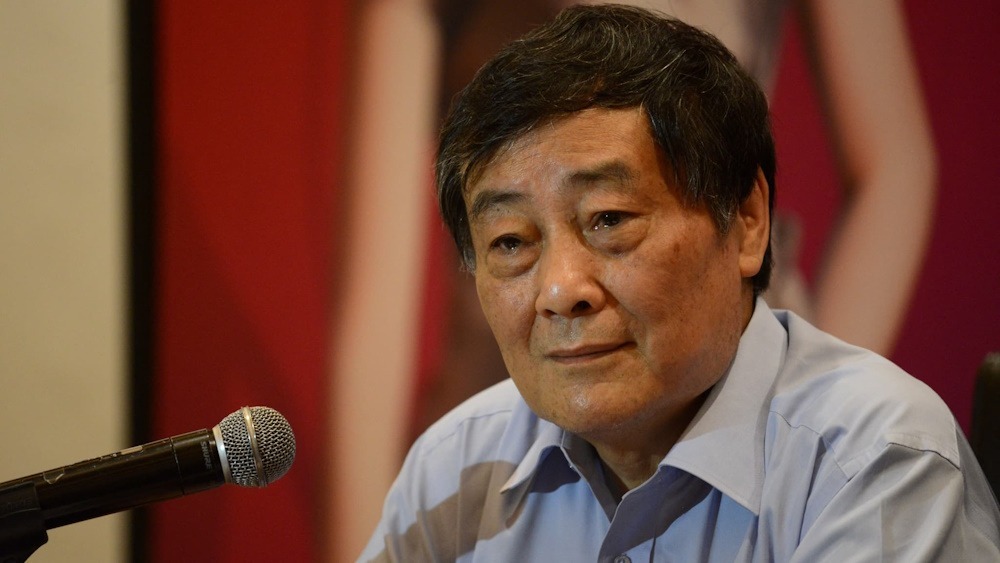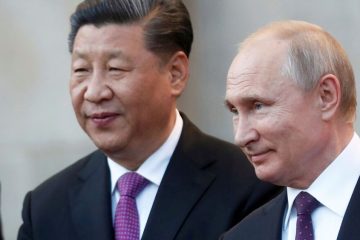Zong Qinghou, Renowned Chinese Soft-Drink Magnate, Dies

Zong Qinghou, the beverage magnate who became one of China’s richest men by challenging international rivals such as Coca-Cola, died on Sunday.
The founder of soft-drink maker Hangzhou Wahaha Group was 78 years old, his company said in a brief announcement posted to its website. The website, which was darkened in an honorary practice marking a significant death, said the cause on Sunday was “ineffective treatment,” without elaborating.
Zong, a legendary entrepreneurial success in China, founded Wahaha after spotting a chance in the 1980s to sell flavored drinks to a population that suddenly had pocket money.
Zong produced some of China’s first television commercial jingles to build national recognition for Wahaha, a name that roughly translates as “laughing baby” and sounds as funny in Chinese as it does in English. He undercut Coke and Pepsi on price, and stoked nationalism to sell Wahaha beverages.
Zong’s family was China’s 31st richest with a fortune estimated at $13.1 billion in a 2023 report by Hurun Report. The Shanghai wealth-research firm in 2010 and 2012 put Zong on top of its annual rich list before he was overtaken by property and technology tycoons. Wahaha is closely held.
In its announcement, Wahaha identified Zong as a Communist Party member. The announcement didn’t mention Wahaha’s future business operations. His daughter Zong Fuli, known as Kelly, has held senior roles in Wahaha for several years.
Like many from China’s first generation of private entrepreneurs, Zong grew up desperately poor. His hometown of Hangzhou later gained an image for technology, after Jack Ma based Alibaba Group Holding there, but business was more freewheeling in 1987 when Zong was selling drinks and ice cream for pennies from a three-wheeled vehicle.
He created Wahaha in 1989 after developing a “children’s tonic” drink that he pitched as a nutritious supplement for students who weren’t getting enough to eat. When he tried to use idled capacity in a government-owned canning company to make the popular drink, workers revolted for fear a private businessman would toss them out.
“The media also said we were capitalists,” Zong told the BBC in 2011. “It was a huge negative campaign.”
His bold move was to buy the 2,000-employee facility. Wahaha hit just as China’s economy was generating cash income for individuals who during its Communist era had goods allocated to them by the government. Zong capitalized on the trend by saturating media so Wahaha became better known than Coke to large segments of the population, and made his drinks available even deep in the countryside with aggressive distribution and low pricing.
Today, Wahaha is a sprawling enterprise covering nearly every Chinese province. The company’s 30,000 employees and more than 80 plants annually produce 30 billion bottles of milk, tea, juice, water and yogurt.
Instead of accepting political appointments like many of China’s wealthiest entrepreneurs, Zong demonstrated his national pride by speaking up for homegrown brands. In 1998, Wahaha introduced “Future Cola” to China’s countryside, pricing it 20% less than Coke and Pepsi. When Coca-Cola in 2008 bid $2.4 billion to buy a Chinese orange-juice brand, a Wahaha official lamented, “if national brands are gone, for the long term, it’s not good for the Chinese industry.” China’s Commerce Ministry blocked Coca-Cola’s takeover attempt.
Zong didn’t shun working with foreign companies, despite his eternal confidence in China’s market, but in 2007 the blowup of a Wahaha venture with the French food company Danone gripped the business world for months.
Danone accused Wahaha of making and selling products outside the companies’ agreed upon network of operations, and Zong charged that Danone stymied the growth of their venture. The French and Chinese presidents even became involved, and after two years of rancor Wahaha agreed to pay Danone hundreds of millions of dollars to settle the dispute.Zong said he had little personal use for his wealth. He told the BBC in 2011 that his only hobbies were cigarettes and tea.
In recent years, Zong ceded increasing responsibility for running Wahaha to his only daughter, Zong Fuli, known as Kelly, a graduate of Pepperdine University in California.






